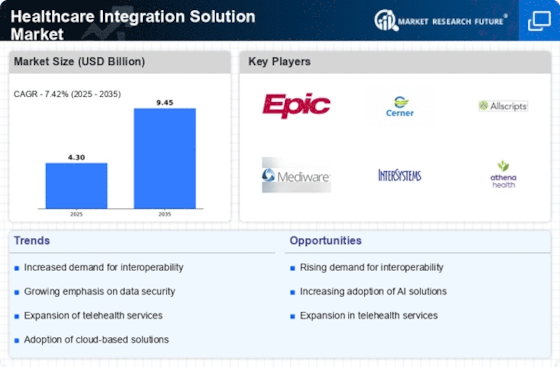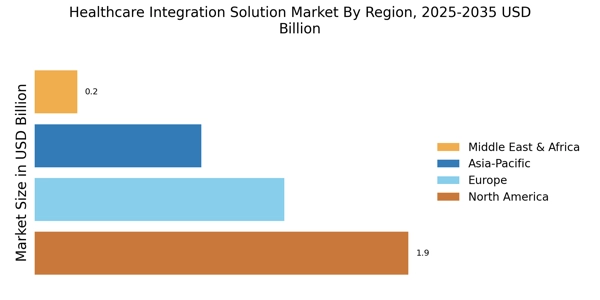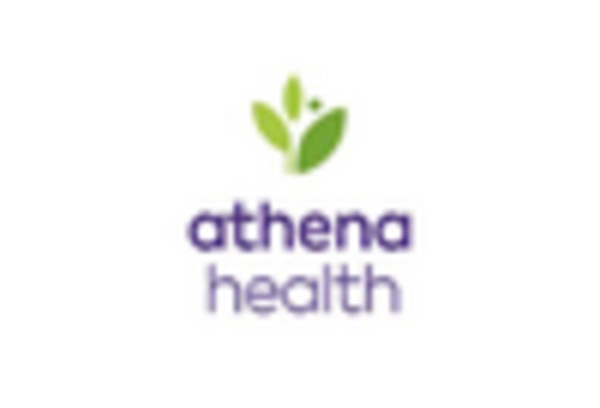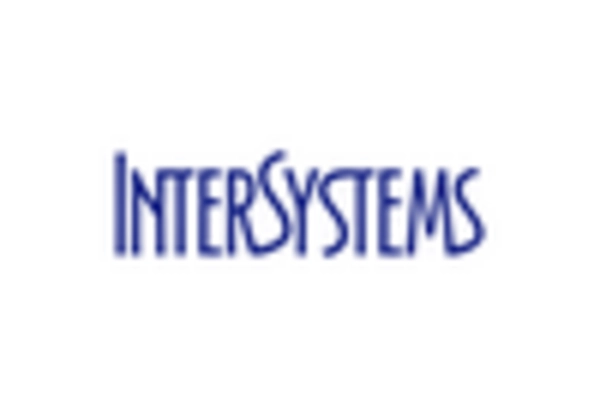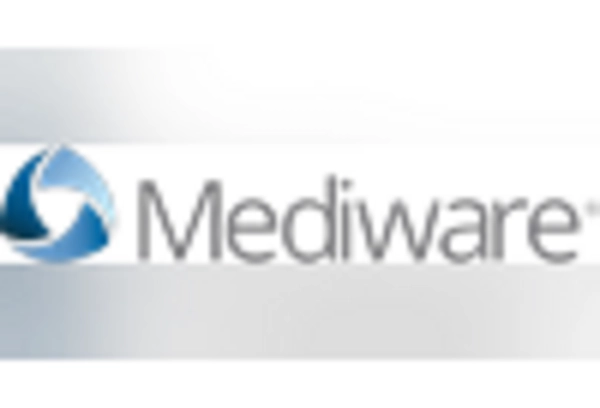Growing Focus on Cost Efficiency
Cost efficiency is a significant driver within the Healthcare Integration Solution Market. As healthcare costs continue to rise, organizations are under pressure to optimize their operations and reduce expenditures. Integration solutions offer a pathway to streamline processes, minimize redundancies, and enhance resource allocation. By consolidating various systems into a unified platform, healthcare providers can achieve substantial cost savings while improving service delivery. Market forecasts indicate that organizations implementing integration solutions may experience a reduction in operational costs by as much as 25% over the next few years. This focus on cost efficiency is likely to propel the demand for healthcare integration solutions.
Increased Investment in Healthcare IT
The Healthcare Integration Solution Market is witnessing a surge in investment in healthcare IT infrastructure. As organizations recognize the importance of technology in enhancing patient care and operational efficiency, funding for integration solutions is on the rise. This trend is fueled by the need for improved data management, interoperability, and analytics capabilities. With healthcare spending projected to increase significantly, investments in IT solutions that facilitate integration are expected to grow correspondingly. Analysts predict that the healthcare IT market could reach over 500 billion dollars by 2027, with a substantial portion allocated to integration solutions. This influx of capital is likely to drive innovation and expand the capabilities of healthcare integration solutions.
Rising Demand for Patient-Centric Care
The Healthcare Integration Solution Market is experiencing a notable shift towards patient-centric care models. This trend is driven by the increasing emphasis on personalized healthcare experiences, where patient engagement and satisfaction are paramount. As healthcare providers strive to enhance the quality of care, the integration of various systems becomes essential. By utilizing healthcare integration solutions, organizations can streamline communication between different departments, ensuring that patient data is readily accessible. This not only improves clinical outcomes but also fosters a more cohesive patient experience. According to recent data, the demand for integrated solutions is projected to grow at a compound annual growth rate of approximately 12% over the next five years, indicating a robust market potential.
Regulatory Compliance and Data Security
In the Healthcare Integration Solution Market, regulatory compliance and data security are increasingly critical drivers. With the rise of stringent regulations such as HIPAA and GDPR, healthcare organizations are compelled to adopt integration solutions that ensure compliance while safeguarding sensitive patient information. The integration of systems allows for better data management and security protocols, reducing the risk of breaches. As organizations navigate the complexities of regulatory requirements, the demand for solutions that facilitate compliance is expected to rise. Market analysis suggests that investments in compliance-driven integration solutions could reach upwards of 20 billion dollars by 2026, reflecting the urgency for secure and compliant healthcare practices.
Technological Advancements in Healthcare
Technological advancements are a pivotal driver in the Healthcare Integration Solution Market. Innovations such as telemedicine, electronic health records, and mobile health applications necessitate seamless integration of various healthcare systems. As technology evolves, the need for interoperability among disparate systems becomes increasingly apparent. Healthcare providers are seeking solutions that can effectively connect these technologies, enabling efficient data exchange and improved patient care. The integration of advanced technologies is projected to enhance operational efficiencies, with estimates suggesting that healthcare organizations could save up to 30% in operational costs through effective integration strategies. This trend underscores the importance of adopting comprehensive integration solutions.


